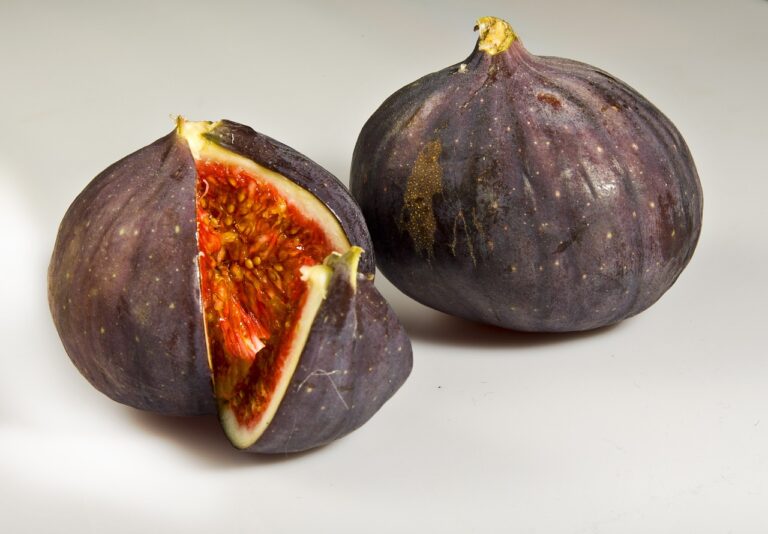Addressing Food Justice Issues Through Equitable Nut and Seed Access: Betbhai.com, Cricbet99, Diamond exchange 9
betbhai.com, cricbet99, diamond exchange 9: In today’s world, food justice is a pressing issue that deserves our attention. Many communities around the globe lack access to healthy and affordable food options, leading to adverse health outcomes and perpetuating cycles of poverty and inequality. One way to address food justice issues is through equitable nut and seed access.
Nuts and seeds are nutrient-dense foods that provide a range of health benefits, including improving heart health, boosting brain function, and reducing the risk of chronic diseases such as diabetes and cancer. However, these foods are often expensive and inaccessible to marginalized communities, creating barriers to achieving optimal health and well-being.
By promoting equitable nut and seed access, we can help ensure that everyone has the opportunity to enjoy the health benefits of these foods. This can be achieved through various strategies, such as increasing the availability of nuts and seeds in low-income neighborhoods, providing subsidies or vouchers for these foods, and working with local farmers to grow and distribute them more sustainably.
In addition to addressing health disparities, equitable nut and seed access can also have positive environmental impacts. Nuts and seeds are high in protein and healthy fats, making them a more sustainable alternative to traditional animal-based proteins. By promoting the consumption of nuts and seeds, we can reduce our carbon footprint and mitigate the impact of livestock farming on the environment.
Overall, addressing food justice issues through equitable nut and seed access is a win-win solution for both people and the planet. By ensuring that everyone has access to these nutritious foods, we can improve health outcomes, reduce inequalities, and create a more sustainable food system for future generations.
**Heading 1: The Importance of Nut and Seed Access**
Access to healthy foods is essential for overall well-being. Nuts and seeds are powerhouse foods that can provide a wide range of health benefits, from improving heart health to boosting brain function. However, many communities lack access to these nutritious foods, leading to disparities in health outcomes.
**Heading 2: Health Benefits of Nuts and Seeds**
Nuts and seeds are packed with essential nutrients, including protein, healthy fats, vitamins, and minerals. These foods have been shown to lower cholesterol levels, reduce inflammation, and protect against chronic diseases such as diabetes and cancer. By including nuts and seeds in our diets, we can improve our overall health and well-being.
**Heading 3: Barriers to Nut and Seed Access**
Despite their health benefits, nuts and seeds are often expensive and inaccessible to many people, particularly those living in low-income communities. Limited availability, high prices, and a lack of education about the benefits of these foods can all contribute to barriers to access.
**Heading 4: Strategies for Promoting Equitable Access**
There are several strategies that can be employed to promote equitable nut and seed access. These include increasing the availability of nuts and seeds in low-income neighborhoods, providing subsidies or vouchers for these foods, and working with local farmers to grow and distribute them more sustainably.
**Heading 5: Environmental Impact of Nut and Seed Access**
In addition to promoting health equity, equitable nut and seed access can also have positive environmental impacts. Nuts and seeds are a more sustainable alternative to traditional animal-based proteins, as they require fewer resources to produce and have a lower carbon footprint. By promoting the consumption of nuts and seeds, we can help reduce the impact of agriculture on the environment.
**Heading 6: Conclusion**
In conclusion, addressing food justice issues through equitable nut and seed access is a crucial step towards creating a more equitable and sustainable food system. By ensuring that everyone has access to these nutritious foods, we can improve health outcomes, reduce inequalities, and protect the environment for future generations.
**FAQs**
Q: Why are nuts and seeds important for health?
A: Nuts and seeds are nutrient-dense foods that provide a range of health benefits, including improving heart health, boosting brain function, and reducing the risk of chronic diseases.
Q: How can we promote equitable nut and seed access?
A: Strategies for promoting equitable nut and seed access include increasing availability in low-income neighborhoods, providing subsidies or vouchers, and working with local farmers for sustainable distribution.
Q: What are the environmental benefits of nuts and seeds?
A: Nuts and seeds are a more sustainable alternative to traditional animal-based proteins, requiring fewer resources to produce and having a lower carbon footprint. Promoting their consumption can help mitigate the impact of agriculture on the environment.







